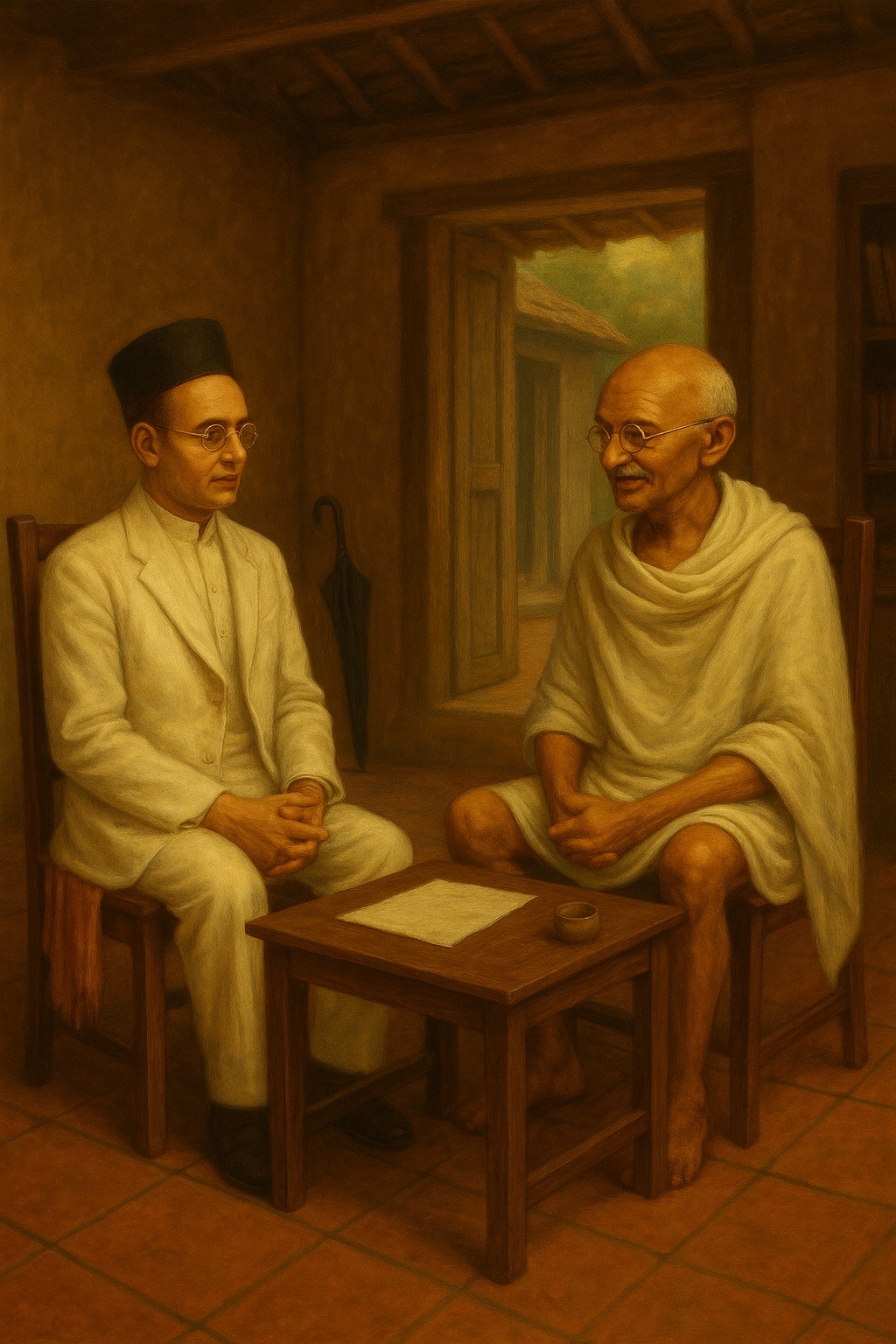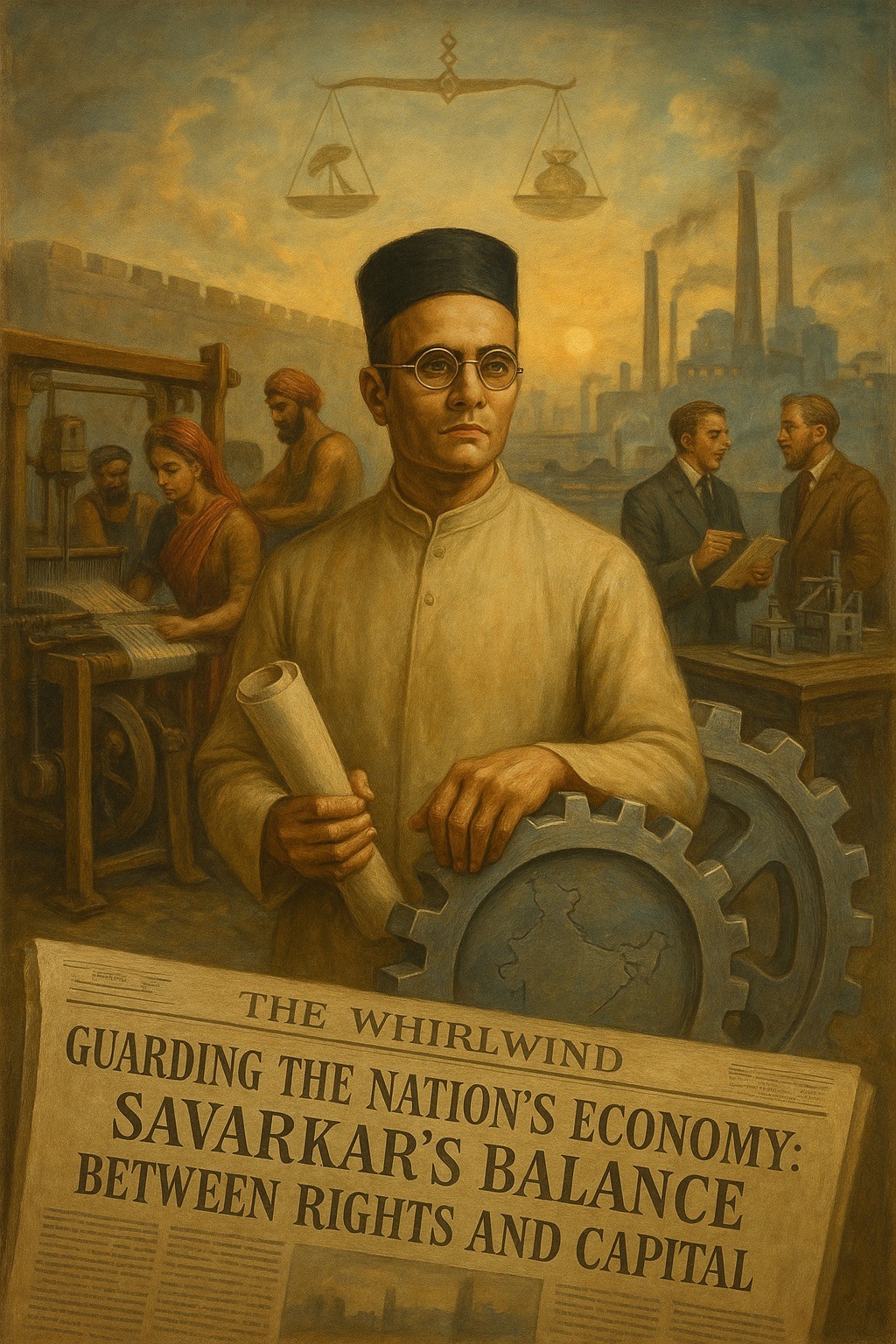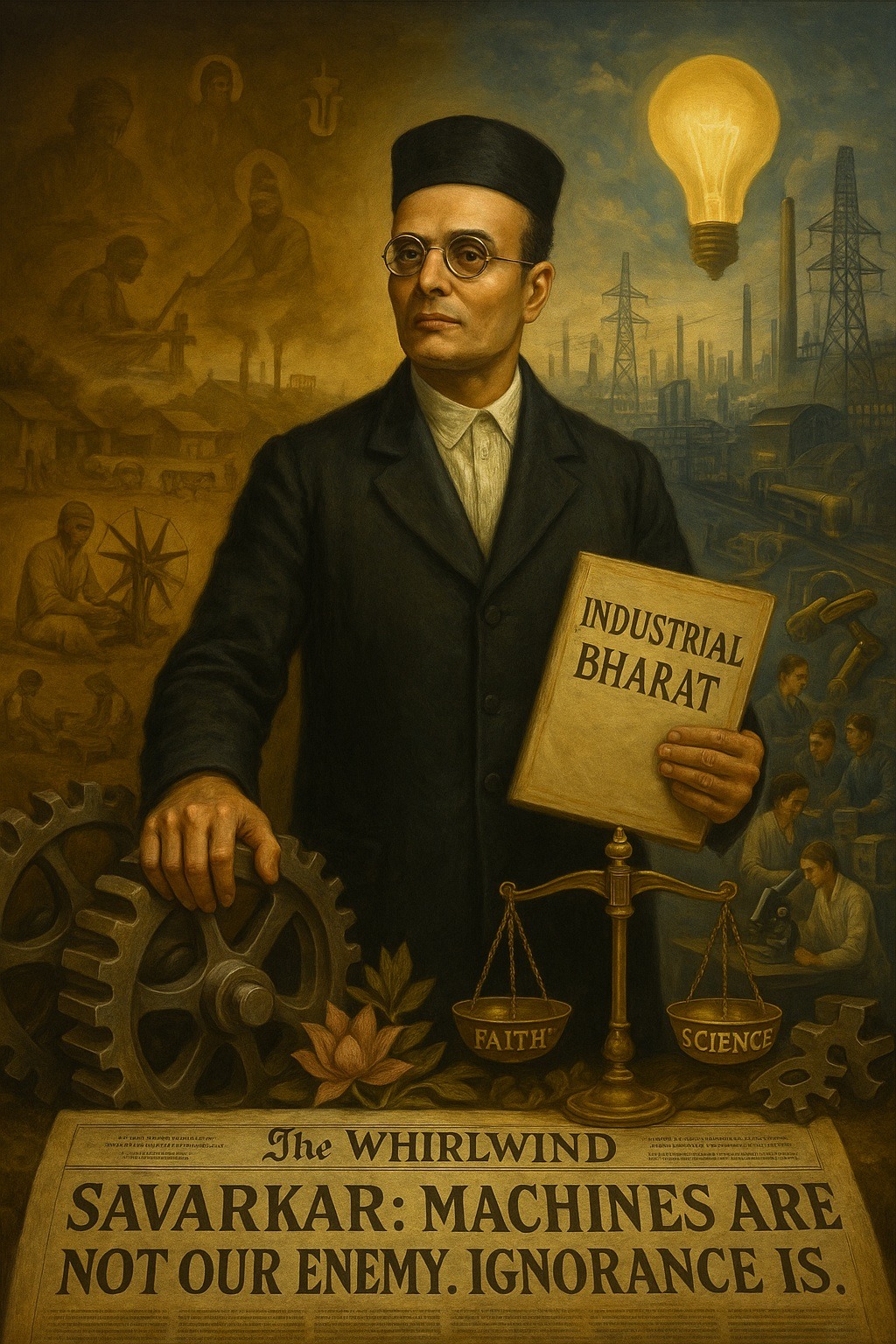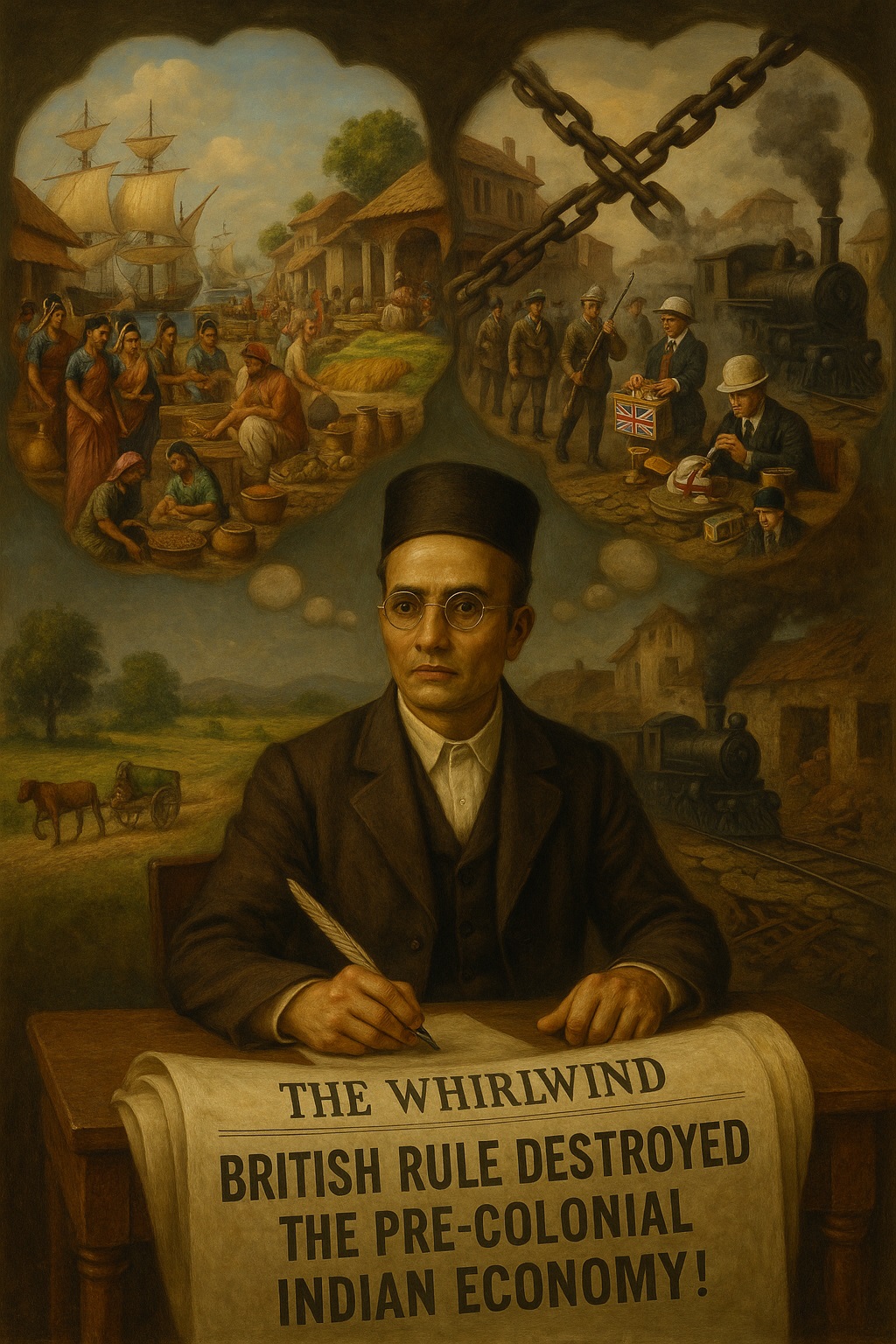Tag: Industrialization
-
Economic Dimension of Hindutva, Part 10; Savarkar’s Economic Principles (6/13) Economic stability and national prosperity depend on a balanced relationship between industry, labor, and capital. In a thriving economy, workers should fairly partake in the profits of the industry. However, in times of economic downturn, just as capital suffers losses, workers too must be prepared…
-
Economic Dimension of Hindutva, Part 6; Savarkar’s Economic Principles (2/13) Vinayak Damodar (Veer) Savarkar was not just a political thinker and revolutionary; he was also a strong advocate for technological progress. At a time when Indian society was grappling with the impact of modernization, Savarkar made a passionate appeal to his compatriots to welcome the…
-
Economic Dimension of Hindutva, Part 2 The economic history of India under British colonial rule (British Raj) remains a subject of significant debate, especially when viewed through the lens of a nationalist perspective. Nationalists have long argued that British colonialism destroyed or severely deformed a flourishing pre-colonial Indian economy, which had been progressing smoothly before…
-
Economic Dimension of Hindutva, Part 1 The Economic Impact of British Colonial Rule on India: A Historical Perspective The nearly two centuries of British colonial rule in India left an indelible mark on the country’s economic, social, and political fabric. Beyond the visible changes in governance and administration, British rule profoundly reshaped India’s economic structures,…





